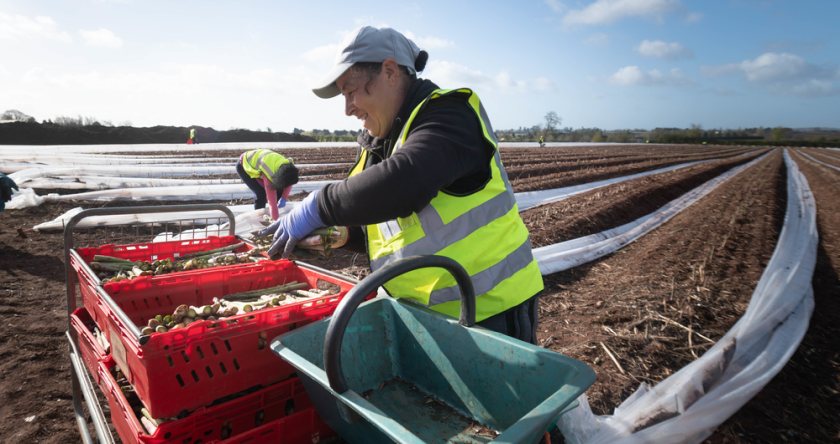
Boris Johnson has been urged to relax rules on visas for foreign farm workers as a reduced access to European labour has left some farmers 'frightened' about the future.
The Chair of the Environment, Farming and Rural Affairs (EFRA) Committee has asked the PM to lead 'urgent action' on visas for agricultural workers to counter acute labour shortages.
Neil Parish MP wrote to Mr Johnson following a meeting of the Committee last week with representatives of the farming and food production sector.
The representatives said a combination of the pandemic and reduced access to European labour following Brexit had left some 'frightened' about their future.
The letter, copied to senior ministers, welcomed steps the government had already taken to grant additional visas to HGV drivers, poultry workers and pork butchers.
But it said 'further, immediate action' was needed, such as fast tracking of visas already granted, as it currently takes at least six weeks to process them, with some workers potentially not arriving until after 20 November – representatives of the sector said this was too slow.
English language requirements for these visas should also be relaxed, they added. The Committee agreed that a certain language standard was required but said the bar had been set too high.
Representatives of the sector said the length of poultry visas should be extended, which are currently set to last until 31 December if workers arrive now.
However, they warned that an 8-week visa was not attractive to most applicants. The Committee called for these visas to be extended to the end of February 2022.
The letter, signed by Neil Parish, said longer-term solutions to the labour shortages were also required if domestic growers of fruit, vegetables and ornamental crops such as daffodils were to meet domestic demand.
Mr Parish said it was clear the sector understood the need to use domestic workers and to invest in necessary technology. However, he said such solutions could not be delivered overnight.
"We hope the government will take the necessary action to support the sector through the immediate challenges it faces, while more sustainable solutions are put in place," he added.
